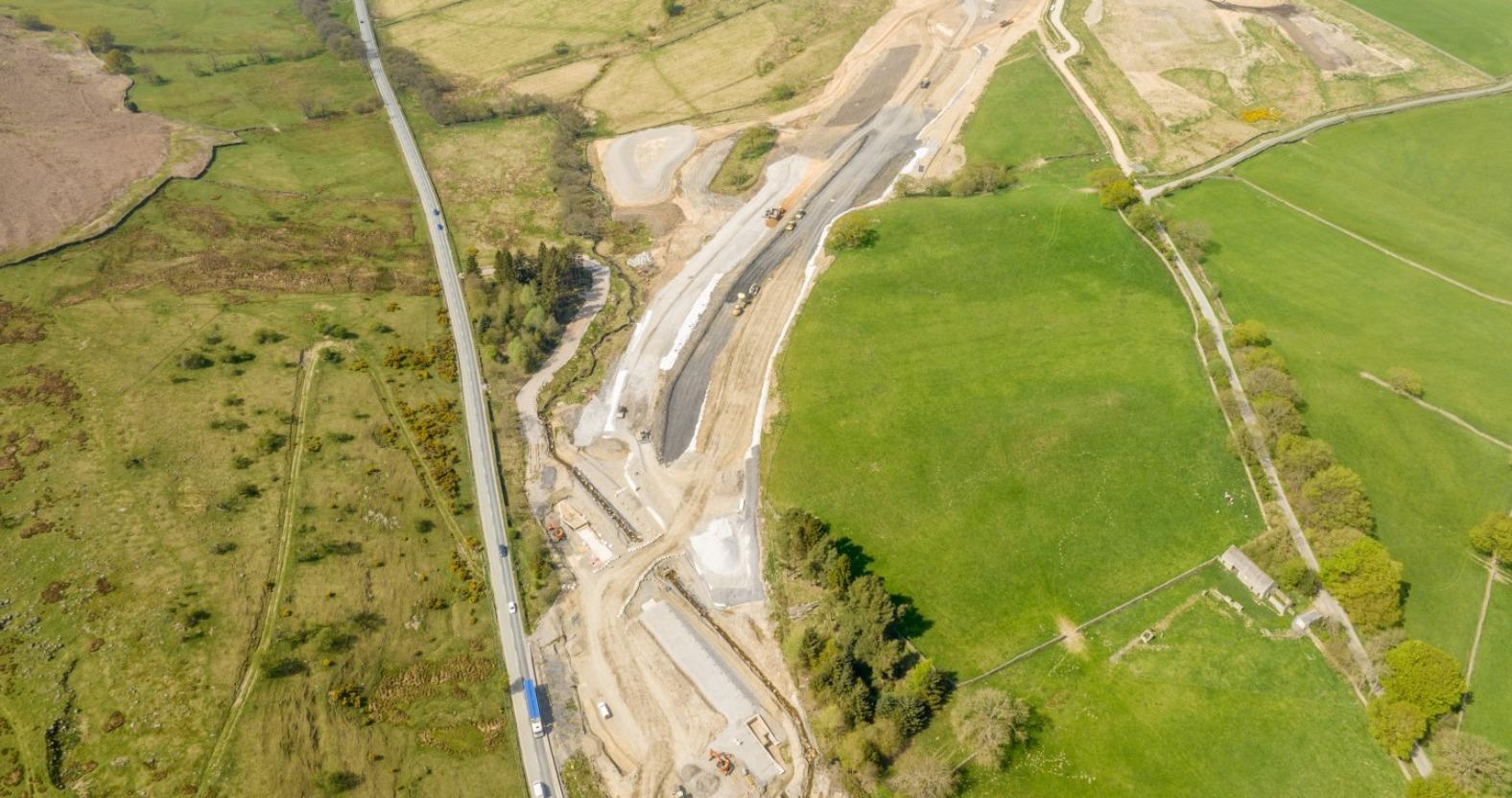Subscribe to trusted local news
If you are accessing this story via Facebook but you are a subscriber then you will be unable to access the story. Facebook wants you to stay and read in the app and your login details are not shared with Facebook. If you experience problems with accessing the news but have subscribed, please contact subscriptions@thestrayferret.co.uk. In a time of both misinformation and too much information, quality journalism is more crucial than ever. By subscribing, you can help us get the story right.
- Subscription costs less than £1 a week with an annual plan.
Already a subscriber? Log in here.
06
May 2025
Kex Gill: Council warns of further cost increases and ‘project continuity at risk’

A North Yorkshire Council report has warned the cost of the A59 road realignment at Kex Gill could continue to rise after the price shot up by £13.7 million last week.
The Stray Ferret revealed on Friday the budget was set to increase from £68.8 to £82.5 million.
Local taxpayers will foot the bill after the Department for Transport, which is contributing £56.1 million towards the scheme, refused a council request for more funding.
A report to the council’s ruling Conservative executive, which is expected to approve the extra spending on May 13, outlines the reasons for the increase — and warns that taxpayers could have to pay out again if further problems occur, such as delays due to bad weather.
The report by Richard Binks, the council’s head of major projects and infrastructure, is in the public domain and can be viewed here. But the council is keeping another background report on the issue secret despite the vast sums of public money involved.
Here are some of the key points from Mr Binks’ report.
Why costs rose
Under the terms of the contract, the contractors and consultants were awarded a lump sum based on 27 individually priced activities. But they could also claim extra costs for unexpected changes above the original scope or length of the work. These are known as ‘compensation events’. Four compensation events are being claimed against the council: the late start; changing the design of the road stabilisation scheme from piling to earthworks; complying with environmental regulations on the diversion of Hall Beck; and having to move poor quality soil off site.
‘No alternative options’
The report says there “are no alternative options” to spending another £11.7 million due to the terms of the contract and warns: “A latent risk also remains that unknown future additional compensation events may also require further project funding support as the works progress on site if any further significant engineering problems are encountered or there are delays due to elements for which the council carries the risk such as weather delays.”

Richard Binks (centre)
‘Project continuity at risk’
The council allocated another £2 million to Kex Gill last month (April) after £6.39 million originally set aside for risks was spent. Now another £11.7 million looks set to be budgeted due to the four compensation events and to cover any future cost increases. Mr Binks’ report concludes: “Project continuity is at risk due to commercial pressure being experienced with works delivery; in this respect the baseline risk monies allowance is now insufficient to contain cost increases.”
Government refused extra funds
A council request for additional grant funding support was declined last year by former Tory roads minister Guy Opperman. He wrote: “As the Kex Gill scheme is currently under construction we consider that the local authority has already clearly demonstrated that it is able to secure the funds required and meet the cost risk, as part of the overall costs of the scheme and in addition to the department’s substantial financial contribution.”

An aerial shot of the Kex Gill road scheme.
What is the Kex Gill scheme?
The A59 is the main route between Harrogate and Skipton.
The scheme at Kex Gill is the largest capital highway project ever undertaken by the former county council and now North Yorkshire Council.
It involves realigning four kilometres of the landslip-prone route, which has suffered 15 landslides in the last two decades at a cost of £6 million, according to the council.
The Department for Transport awarded £56.1 million, and the council initially contributed £12.7 million.
Construction work, which began in February 2023, comprises a 27.8 hectare working site, 12 new structures including two underpasses, walls and culverts, 4 km of new bridleways, 7 km of dry stone walls, 9 km of new drainage, the diversion of Hall Beck, planting 12,000 trees and shrubs, 12 km of utility diversions and reverting the existing A59 back to moorland. The report says work is ‘now just over halfway complete’,
Work to build the new road was supposed to take 113 weeks from January 2023 to March 2025. But the finish dates has been put back to June 2026, which is the cause of one of the compensation event claims. Once the new road is built, contractors will then complete a second phase of work decommissioning the existing A59 and turning it back to moorland, which is not now due to finish until March 2027.
1